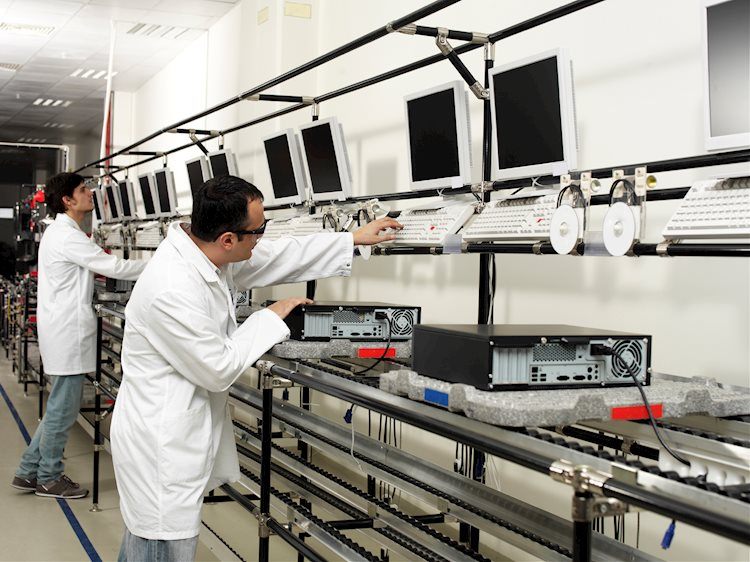The second day of the Esfera Brasil Forum gathered this Saturday (26) ministers of the Superior Court of Justice (STJ) and of the Superior Electoral Court (TSE) for a discussion about the reality of Brazilian courts, innovations in the sector and how to guarantee legal security in the country.
The panel of the event had the participation of the ministers of the STJ João Otávio de Noronha and Paulo Sérgio Domingues and the minister of the TSE Benedito Gonçalves.
During the debate, Noronha stated that the security that worries him the most is that of the citizen. That’s because, in his words, it is compromised when the system fails and is corrupted.
“The Brazilian prison system is one of the worst in the world, and we are not bothered by it. What bothers us is walking on the beaches of Rio [de Janeiro]or on Avenida Paulista in São Paulo and, at any time, being robbed and attacked”.
The minister also added that the prison system, in his opinion, does not repair anything in Brazil. “He doesn’t notice for a simple reason: we didn’t let the penalty be treated as it should be, because, today, the penalty is treated as revenge by society. There is no concern about recovering the prisoner”, he said.
What concerns the most in terms of security, according to the minister, is drug trafficking. He recalled that he spent two years in the penal session of the STJ, in the 3rd session, and had the opportunity to observe what was happening. “The state lost the war to drug trafficking. It is undeniable,” he stated.
“What we catch in drug trafficking is the so-called ‘mule’. It’s the pregnant woman, it’s the student, it’s the poor guy co-opted by the big drug dealer, who the police rarely manage to catch. And most importantly, we arrest, sometimes, pre-emptively. The next day, the traffic already co-opted another one. And with that, we are increasing the prison population, by 40% of people provisionally arrested, ”she added.
The minister said that what is needed at this moment is to combat the ineffectiveness of the anti-drugs policy, which he described as outdated. 🇧🇷[Se não mudar] we will continue to be bothered by young people assaulting us, attacking us to steal a cell phone, sell and buy drugs.”
In the view of TSE Minister Benedito Gonçalves, the judicial system is going through a phase of revolution. He defended that it is time to seek a balance between the positivity of the law and the speed of the solution in the justice system.
“The debate interests everyone. Our system seeks to find all mechanisms of tools and agility. This was proven in the pandemic, helping us with the computer tool. We have the study in the implantation of artificial intelligence, which will help in the admissibility of the appeals”, he said.
Gonçalves recalled that, when he was at the STJ, he had 1,500 cases a month in his office. “I don’t put 1,500 processes a month on the street, but, thanks to the computerized tools that exist today, we are able to move forward with a lot of these processes faster.”
The TSE minister highlighted that these mechanisms can provide security to the legal system and seek the effectiveness of the law, with the speed of Justice in its solution.
STJ Minister Paulo Sérgio Domingues, appointed last Thursday (24), addressed the issue with a different approach. For him, the important thing in the debate on legal certainty is not how to get into court, but how to get out.
“We have to discuss how to make the process go faster, without losing the security of a process that guarantees the parties to defend their rights, to present their evidence, a process that obeys the constitutional guarantees of the citizens, but that, at the same time, has a faster speed and that can solve the desires of society”, he pointed out.
For Domingues, the issue of technology is fundamental. In recent years, he says that the judiciary in the country has managed to radically computerize itself. “This allowed us to better measure the progress of the processes, identify where the bottlenecks are in the Judiciary. It allowed us to find suitable solutions to undo knots. This allows us to direct where we should grow.”
When talking about the delay in the processes, Domingues said that the processing time for lawsuits has decreased by about 80% since the introduction of electronic processes.
“Another tool that helped improve the process is conciliation and mediation. The combination of technology and conciliation is what allowed us to create advances during the pandemic. It made Justice not stop working in any of the spheres”, said the minister.
Source: CNN Brasil
A journalist with over 7 years of experience in the news industry, currently working at World Stock Market as an author for the Entertainment section and also contributing to the Economics or finance section on a part-time basis. Has a passion for Entertainment and fashion topics, and has put in a lot of research and effort to provide accurate information to readers.






